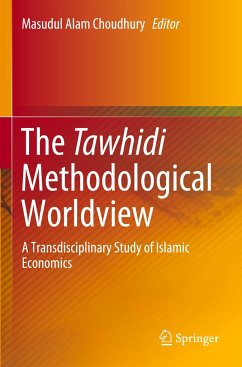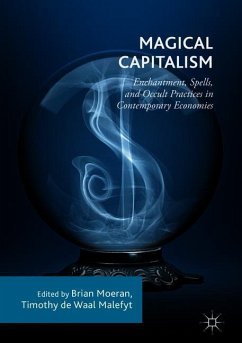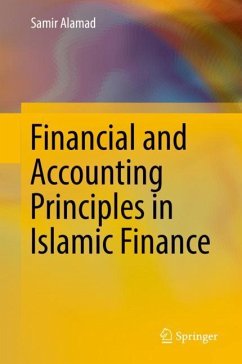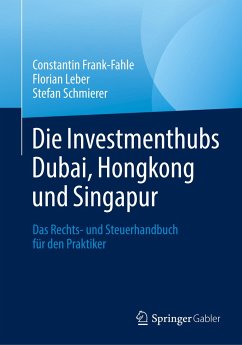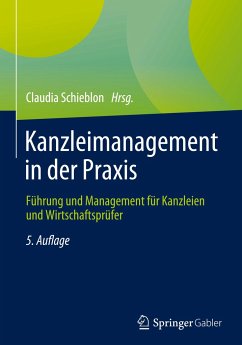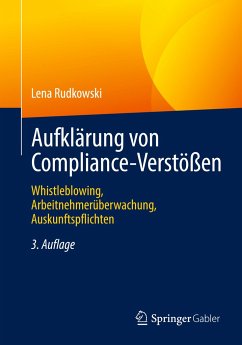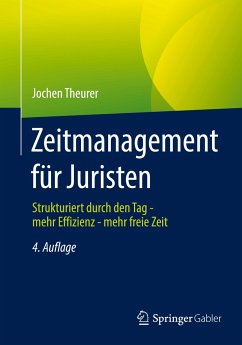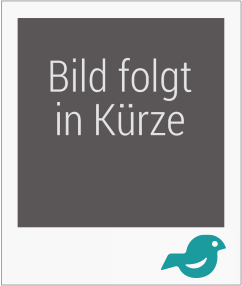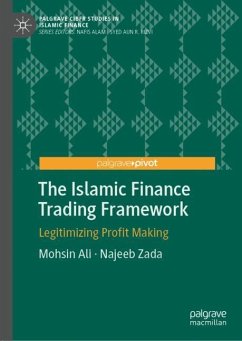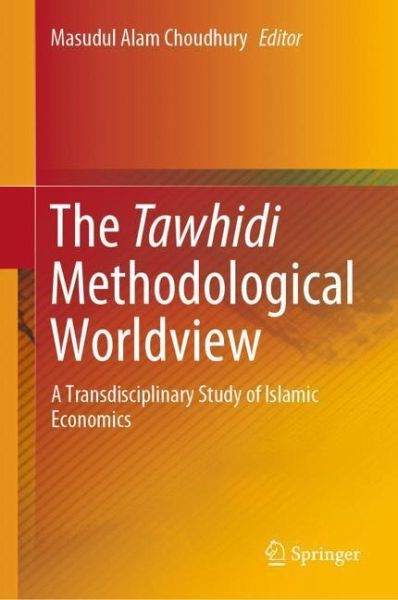
The Tawhidi Methodological Worldview
A Transdisciplinary Study of Islamic Economics
Herausgegeben: Choudhury, Masudul Alam

PAYBACK Punkte
46 °P sammeln!
This book develops and applies the methodology of Tawhid ("monotheism") as law and the Sunnah (the teachings of Prophet Muhammad) in the Qur'an in establishing a transdisciplinary foundation for the study of Islamic economics, finance, society, and science. It employs the Tawhidi String Relation (TSR), a new theoretical framework in contemporary Islamic sciences, in the methodological formalisation and application of the Tawhidi worldview - as the primal ontological law of monotheism. It employs a deeply Qur'anic exegesis, and a mathematical, philosophical, and socio-scientific mode of inquiry...
This book develops and applies the methodology of Tawhid ("monotheism") as law and the Sunnah (the teachings of Prophet Muhammad) in the Qur'an in establishing a transdisciplinary foundation for the study of Islamic economics, finance, society, and science. It employs the Tawhidi String Relation (TSR), a new theoretical framework in contemporary Islamic sciences, in the methodological formalisation and application of the Tawhidi worldview - as the primal ontological law of monotheism. It employs a deeply Qur'anic exegesis, and a mathematical, philosophical, and socio-scientific mode of inquiry in deriving, developing, and empirically applying the Qur'anic methodology of "unity of knowledge". It is the first book of its kind in rigorously studying the true foundation of the Qur'anic concept of 'everything' - as the world-system extending between the heavens and Earth. The qur'anic terminology of the precept of this "world-system" in its most comprehensive perspective is A'lameen, the terminology in the Qur'an that accounts for the generality and details of the world-systems that are governed by the method of evaluation of the objective criterion of wellbeing. Wellbeing objective criterion is evaluated subject to inter-causal relations between systemic entities, variables, and functions. The cardinal principle of Tawhid in its relationship with the world-system conveys the corporeal meaning of monotheism in its cognitive implication of abstraction and application. Such a study has not been undertaken in existing Islamic socio-scientific literature in analysing Islamic economics, finance, science, and society collectively, using Tawhidi law as a theoretical framework. This book will be relevant to all such scholars who are interested in studying the monotheistic law and the Islamic principles, particularly Tawhid, Shari'ah, and Islamic philosophical thought.





